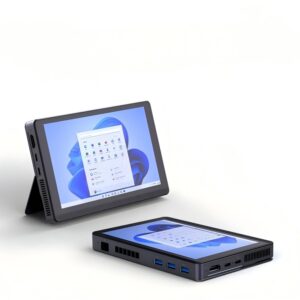PMMA Touch Screens: A Clear and Responsive Choice
Key Advantages:
- High Transparency: PMMA provides excellent clarity and visibility, ensuring a clear and crisp display.
- Lightweight: PMMA is a relatively lightweight material, making it suitable for portable devices.
- Scratch Resistance: PMMA offers good scratch resistance, protecting the screen from damage.
- Chemical Resistance: PMMA is resistant to a variety of chemicals, making it suitable for use in harsh environments.
- Cost-Effective: PMMA is generally more cost-effective compared to other materials like glass.
Applications:
- Smartphones and Tablets: PMMA is commonly used in the touchscreens of smartphones and tablets due to its combination of clarity, durability, and cost-effectiveness.
- Point-of-Sale (POS) Systems: PMMA touch screens are widely used in retail and hospitality industries for customer interactions and transactions.
- Industrial Automation: PMMA touch screens are used in industrial control panels and machines for operator input.
- Medical Devices: PMMA touch screens are found in medical equipment such as diagnostic devices and patient monitoring systems.
While PMMA offers many advantages, it also has some limitations:
- Hardness: PMMA is not as hard as glass, making it more susceptible to scratches.
- Temperature Sensitivity: PMMA may be affected by extreme temperatures, which can impact its performance.


